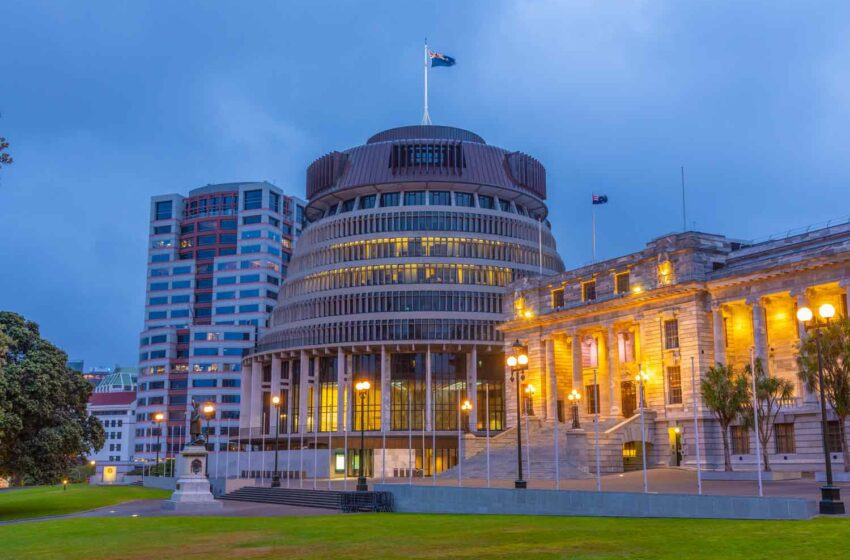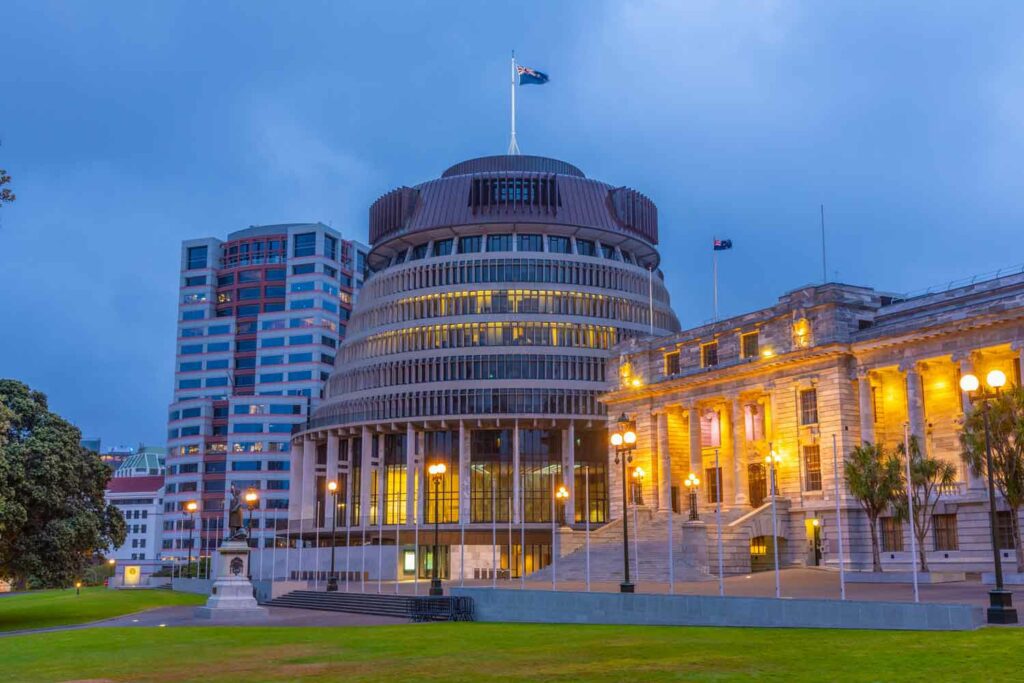
Though a generational tobacco ban is not without merit, the U.K. will not allow it to work in the way that it could—and thus the measure should be shelved.
If I have this correctly, the U.K.’s proposed generational tobacco sales (GTS) ban has been attacked by libertarians as being contrary to the principles that people should be allowed to make their own choices about the risks they are prepared to take in life and to take responsibility for the consequences of those choices, providing they act within the law and their actions do not harm others.
These are powerful arguments, but are they enough to defeat the proposal, which, as currently envisaged, would mean that from Jan. 1, 2027, anyone born on or after Jan. 1, 2009, could never be sold tobacco products legally in the U.K.? I suspect not.
One problem arises because the first duty of the government is to protect U.K. citizens, and while, by not allowing smoking in public places, the U.K. government might be seen mostly to have discharged that responsibility in the case of smoking, it is not difficult to imagine how some might argue otherwise. Smokers may still smoke at home, affecting family members, and because, we are told, smoking has a negative economic impact on society, it must be seen as causing harm to nonsmokers by robbing society of the funds to help those in need.
These are powerful arguments, but are they enough to support the radical idea of a GTS ban? I suspect not.
A major problem to my way of thinking is that the GTS ban is based, as is much else to do with tobacco and vaping, on faulty statistics and information and on ideological rather than rational ideas. Regulatory skyscrapers have been and are being built on dodgy foundations.
Here is an example. The first words of a GTS ban blog post from the U.K. Department of Health on Jan. 30, titled “Creating a smoke-free generation and tackling youth vaping: What you need to know,” had it that “The prime minister has set out plans to build a better and brighter future for children.”
I find it intolerable that I am being told by a government department that I need to know something that is misleading. A Feb. 20 story by social policy editor Patrick Butler published in The Guardian newspaper and quoting the Association of Directors of Children’s Services had this to say: “In a withering assessment of the government’s record over the past few years, they said ministers had presided over deepening child poverty, crumbling schools and an exploding health and well-being crisis in young people, with low-income families worst affected. The government’s failure to prioritize the post-pandemic needs of children in England was a ‘massive missed opportunity’ that would leave many thousands of youngsters ‘left behind.’”
The prime minister referred to in the blog is Rishi Sunak, who has been either prime minister or chancellor of the exchequer during almost the entire time frame referred to in The Guardian piece. Does it really sound like he has been building a better and brighter future for children?
Of course not. So the question arises as to why anybody should believe anything else in the blog or any of the other so-called information put out by the government in relation to the GTS ban. And the answer is that there is no reason to believe and every reason to suspect one is being conned. You have only to gaze briefly at the graphic “warnings” on tobacco packages to realize how misleading they are and, I would contend, are meant to be. And the statistics linking diseases and death directly to smoking and to no other causes (drinking, eating highly processed food and taking nonprescription drugs, etc.) are clearly misleading.
But as they say, we are where we are, and whether you accept the necessity of the GTS ban will probably depend largely on whether you believe the information put out by the government. So let’s for the moment accept the government’s position and say that because of the tragic consequences of smoking, and smoking alone, it is necessary to put an end to the habit.
At this point, we need to ask whether the GTS ban is the best approach, and I think you have to say that probably it is. Nearly everyone dismisses the idea of outright prohibition because they say it would not work, and once you say that, you know it won’t be allowed to work—you have set yourself up to fail. Another idea would be to employ tobacco harm reduction (THR), but this will take forever because there are so many people opposed to it, and even those who believe in it can be made to jump and think again simply by saying, “Boo! Children!”
So a GTS ban is the best game in town? Possibly, but that is not to say that even it would work. Let’s take a look. Despite what I wrote in the second paragraph, the blog actually says that from Jan. 1, 2027, anyone born on or after Jan. 1, 2009, “will never be able to legally sold tobacco.” That does not make sense, of course, and it makes you wonder how much effort has gone into the GTS proposal, which is being hurried along in an election year. But, no matter, the idea is not without merit. It has the advantage that, in theory, nobody who has taken up smoking after being sold tobacco products legally will ever be forced to quit.
It has the advantage, too, that it is not really a ban. Smokers, we are told, smoke for the nicotine, and, as things stand and in theory, those who are born after Jan. 1, 2009, will still be able to buy nicotine in inhalable and possibly other forms once they have turned 18. I write that with a feeling of trepidation, however, because a U.K. representative at the February meeting of the Conference of the Parties to the World Health Organization Framework Convention on Tobacco Control said that no nonsmoker should use a vape. Whether this was meant to be simply a moral judgement whose basis was not spelled out or whether it heralded a regulatory extension of the GTS to cover vapes was not clear. If the latter is the case, GTS is probably dead in the water.
If, on the other hand, the former is the case, it looks like GTS is set to roll, right? Not so fast. One of the major objections made against the ban is that it would create a two-tier society where some people are allowed to buy tobacco products and some are not. I am not sure that this should be seen as a huge problem because we already have age-determined dividing lines in our society in respect of many products and activities; it would just be the case that the dividing line would be on a sliding scale in respect of one product, which is not something that should send us into an intellectual death spiral. After all, the pension age has also been moved on to such a scale.
A connected and more concerning issue to my mind is that the ban would put retailers in an invidious position because they would be required to tell the difference between two adults, one of whom was one year older than the other. There is age estimation technology available that can reliably tell if somebody is under 25 and therefore trigger a request for that person to prove they are over 18, but it seems unlikely that it could split, say, a 40-year-old from a 41-year-old.
There are ways around this problem using some form of identity documents but none that I can think of that would be foolproof in a society where not everybody has such documentation and where not everybody who does carries it with them. And it would be a brave politician who raised the specter of a universal system of identity cards in the U.K. simply to help smokers.
The only answer to this problem as I can see it is to make it illegal for anyone born after Jan. 1, 2009, to buy tobacco products, putting the onus on the buyer rather than the seller, who would nevertheless still be required not to sell to those under the age of 18.
The objection here would be that people would ignore the rules and buy tobacco products illegally. But would this really matter? The law would be in place in large part to protect the individual so that if an individual decided to sidestep the law, it would be their fault if they fell ill from smoking, were fined, not an unlikely outcome at some time given that they would need to buy a pack every day or two, or if somewhere down the line they were forced to quit because the last licit smoker had died or if manufacturers withdrew cigarettes on the grounds that there were too few people left who could buy tobacco legally.
So, we are back on track? A GTS ban it is? No, sorry, there are still a few things we need to clear up. For a GTS ban to work, in my view, it is necessary to have a long-term THR policy in force that provides a range of attractive, reasonably priced, less risky alternative products to help those who want to quit smoking and, importantly, so as not to discriminate against people based on age—one year of age. And despite the U.K.’s reputation of having embraced THR, we are nowhere near having a comprehensive policy that people can rely on to still be in force next month. Snus is banned, and the government continues to dither over heat-not-burn products. Even vapes are subject to winds of change. The government is going to ban disposable products, it is set as I write this piece to further tax these products, and, because the middle classes said, “Boo! Children!,” it is going to ban various flavors.
And worse is to come. Because, despite what it says, the government will not adequately fund the organizations charged with controlling the retail sale of products to those underaged, the general media will soon be crawling with stories about how little Johnny, the light of his mother’s life, was sold vaping products laced with crack, drawn into a den of vice and reduced to a life that was solitary, poor, nasty, brutish and short.
Let’s face it: Though GTS is not without merit, it is not going to be allowed to work in the way that it could, and it needs to be shelved. It is true that it is simply too risky to design policy initiatives when politicians are trawling for votes, as they currently are in the U.K.
























